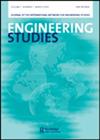创意与商业化:俄罗斯工程师及其启示和创新过程
IF 1.3
3区 工程技术
Q2 EDUCATION, SCIENTIFIC DISCIPLINES
引用次数: 1
摘要
许多俄罗斯人认为当地的工程师非常有创造力。然而,从历史上看,俄罗斯创新者创造的众多发明很少最终成为商业化产品。与外国同事相比,俄罗斯工程师真的有创造力吗?这种创造力的动机是什么?这样一个共同的创造力概念是国家创新发展的障碍吗?我建议通过对俄罗斯技术企业家的采访来回答这些问题。为了与俄罗斯的案例进行比较,我将使用另一组对收集在韩国、台湾和芬兰三个国家的技术企业家的采访,其中每一个国家都有不同的文化背景和技术发展水平。我总结了一个集体研究项目的主要发现,该项目采用了Luc Boltanski和Laurent Thévenot的“价值经济”理念该研究表明,“价值订单”的基本组合在选定的国家各不相同。在俄罗斯,这种混合包括工业订单、灵感订单和市场订单;在台湾,市场、产业和国内;在韩国,工业、国内和市场;以及芬兰的项目基地、工业和市场。文章重点分析了俄罗斯技术企业家的正当性世界,认为与芬兰、韩国和台湾的情况相反,创造力和灵感,以及为自己的利益生产技术的价值观,是俄罗斯工程师的主要动机。这可以解释该国成功商业化和技术发展的障碍。本文章由计算机程序翻译,如有差异,请以英文原文为准。
Creativity vs Commercialization: Russian Engineers, Their Inspiration and Innovation Process
Many Russians believe that local engineers are very creative. Historically, however, the numerous inventions created by Russian innovators have rarely ended up as commercialized products. Are Russian engineers indeed creative in comparison to their foreign colleagues? What motivations are associated with this creativity? Is such a shared conception of creativity a barrier to the nation’s development of innovations? I propose to answer these questions using interviews with Russian technopreneurs. For comparison with the Russian case, I will use another set of interviews with technopreneurs collected in three countries—South Korea, Taiwan and Finland—each of which can be characterized by different cultural contexts and level of technological development. I summarize the main findings of a collective research project, which employs Luc Boltanski and Laurent Thévenot’s idea of ‘economies of worth.’ The study demonstrates that the basic mixes of ‘orders of worth’ are varied across the selected countries. In Russia, this mix includes the industrial, the inspired and the market orders; in Taiwan, the market, the industrial and the domestic; in South Korea, the industrial, the domestic and the market; and in Finland, the project-base, the industrial and the market. Focusing on detailed analysis of the worlds of justification among Russian technopreneurs, the article argues that, contrary to the Finnish, South Korean, and Taiwanese cases, creativity and inspiration, together with values of producing technologies for their own sake, are prevailing motivations for Russian engineers. That can explain obstacles in the way of successful commercialization and technological development in the country.
求助全文
通过发布文献求助,成功后即可免费获取论文全文。
去求助
来源期刊

Engineering Studies
ENGINEERING, MULTIDISCIPLINARY-HISTORY & PHILOSOPHY OF SCIENCE
CiteScore
3.60
自引率
17.60%
发文量
12
审稿时长
>12 weeks
期刊介绍:
Engineering Studies is an interdisciplinary, international journal devoted to the scholarly study of engineers and engineering. Its mission is threefold:
1. to advance critical analysis in historical, social, cultural, political, philosophical, rhetorical, and organizational studies of engineers and engineering;
2. to help build and serve diverse communities of researchers interested in engineering studies;
3. to link scholarly work in engineering studies with broader discussions and debates about engineering education, research, practice, policy, and representation.
The editors of Engineering Studies are interested in papers that consider the following questions:
• How does this paper enhance critical understanding of engineers or engineering?
• What are the relationships among the technical and nontechnical dimensions of engineering practices, and how do these relationships change over time and from place to place?
 求助内容:
求助内容: 应助结果提醒方式:
应助结果提醒方式:


